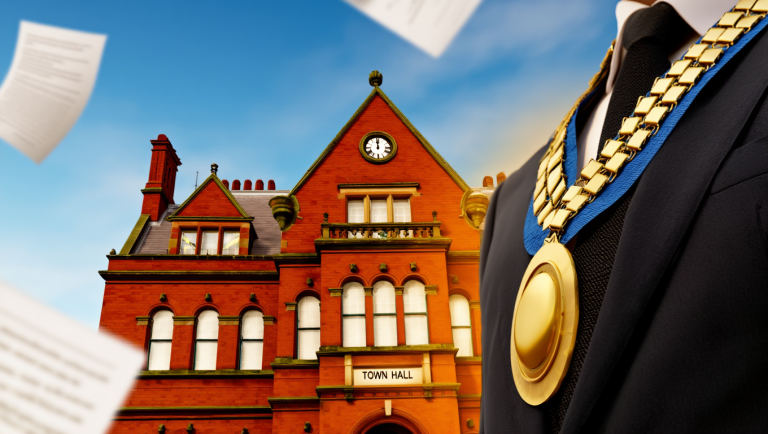Think being a mayor in France means driving around in limousines and swimming in piles of euros? Not quite. The real numbers—and the reality behind calls for “fairer recognition”—may surprise you as much as a croissant with ketchup.
How Are French Mayors Paid?
The remuneration of mayors in France isn’t based on charm, the number of handshakes, or how many baguettes they slice at town festivals. Instead, it’s determined by an index tied to the population of their municipality. In short: the more residents, the higher the official function allowance. And yes, this amount is regulated by law—so there’s no room for wild salary negotiations at the town hall coffee machine.
Every month, French mayors receive an allowance for carrying out their duties. This is calculated from the “indice brut terminal” of the civil service, known as index 1027. In good news for wallet-watchers, this benchmark was updated on January 1, 2024, bringing it to a value of 4,410.52 euros. But that’s just the starting point for the actual allowance.
Tiered Rates: From Tiny Villages to Paris
The mayoral allowance varies depending on municipal population. Here’s how it breaks down:
- For mayors of municipalities with fewer than 500 inhabitants, the minimum is 1,048.18 euros gross per month.
- At the other end, leading a city with more than 200,000 inhabitants brings the maximum set at 5,960.26 euros monthly.
- Paris, being Paris, comes with a special rate: 7,912.76 euros gross per month.
By law, municipalities are expected to grant mayors the maximum allowance in their population bracket—unless the municipal council, on the mayor’s initiative, decides otherwise (article L2123-23, for legal enthusiasts).
For real-world examples:
- Anne Hidalgo, mayor of Paris (2.1 million residents), receives 7,912.76 euros gross each month.
- Christian Estrosi, in Nice (340,000 inhabitants), gets 5,960.26 euros.
- Édouard Philippe, mayor of Le Havre (160,000 residents), also receives 5,960.26 euros.
Challenges, Change, and That “Fairer Recognition”
Being a mayor involves more than ceremonial ribbon-cuttings—and Paris is not the only corner where job difficulty is felt. Shortly after becoming Prime Minister on September 17, Sébastien Lecornu sent a letter to nearly 35,000 French mayors. As a former mayor himself, he acknowledged the difficulty and weight of their responsibilities.
With six months left before the municipal elections, Lecornu used ink and paper (how retro!) to announce plans for change. He notably mentioned the intent to see a law establishing a specific status for local elected officials completed before the municipal elections—a law already adopted in its first reading in the National Assembly. There’s also talk of a major act of decentralization, aiming for public services that are effective, close at hand, and tailored both to citizens’ needs and France’s public finances (a juggling act if there ever was one).
Crucially, Lecornu stressed, “Our support will need to materialize through fairer recognition of your commitment as agents of the state, which I want to include in the budgetary texts for 2026.” Will this mean more money for mayors? The text leaves that hanging, but one thing is clear: it’s been a longstanding demand among local elected officials.
In a study by Sciences Po’s Centre for Political Research (Cevipof), conducted with the Association of French Mayors (AMF) and the Ministry for Territorial Communities (published in November 2023), a full 50% of mayors thought their allowance should be increased to encourage more engagement from future municipal officials.
Money, Motivation, and Dropping the Mayoral Mic
Does the monthly allowance tell the whole story of serving as mayor? Not quite. According to the same Cevipof study, it’s far from a get-rich-quick scheme:
- 40.1% of mayors also hold a separate job, so they combine this allowance with another salary.
- A jaw-dropping 87% of mayors do not claim reimbursement for their expenses. So, that train ticket to a regional meeting? Often coming out of their own pocket.
- 35% of mayors have, at least once, given up part of their own allowance.
So, while the salary bracket increases with city size, for most mayors, it’s a commitment that runs deeper than euros. In fact, half of French mayors believe their compensation needs to rise to spur new public servants into those distinctly uncomfortable tricolor mayoral sashes.
In the end, the numbers show that behind the town hall doors, the life of a French mayor is more duty than luxury. As the debate around “fairer recognition” rumbles on, perhaps the next time you see your local mayor at the bakery, give them a smile—and maybe let them skip the queue. After all, the job may be bigger than the paycheck.


